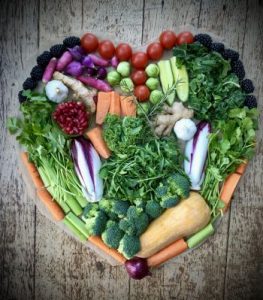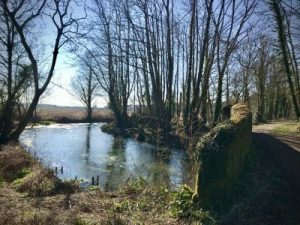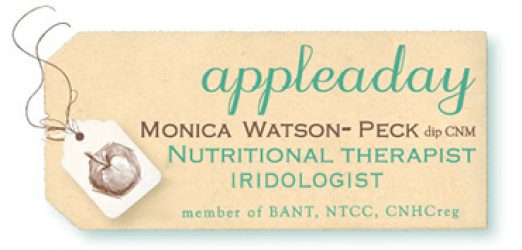Immune health has understandably been in the spotlight since the start of the Covid-19 pandemic. We’ve all been asking the same: how to avoid catching Sars-CoV-2, and how to have less severe symptoms if we do catch it. Staying home, socially distancing and wearing masks will all naturally minimize exposure to any pathogen, but what else can we be doing to support our immune system?
Since nutrition is such a big part of who I am at home, and in clinic, as a functional nutritionist, I’ll always think food first. If research has shown that we are what we eat, then being vital and thriving versions of ourselves is the first step to being immune strong.

A daily rainbow of vegetables means we can piggy back on the defence mechanisms of the plant world; support our immune systems by eating a variety of colours and tastes. Bright colours and strong smells and tastes – just think of garlic! – are the plants’ defences that translate into antioxidants, phytonutrients, vitamins and minerals for us.
Ten or twelve portions of vegetables, herbs and fruit may sound a lot, but it’s not that difficult to incorporate them into daily meals. Salads, soups, juices, stir fries, oven roast veg, or a packed steam-pot. Variety and colour are key. Then add to that good quality protein, healthy fats – and clean, fresh water, always – and we have an arsenal of nutrients to battle any infection.
In order to absorb and effectively use these immune-enhancing nutrients our digestion has to be working well. In fact, with Covid-19, we need to ensure our gastrointestinal AND oral & respiratory barriers are robust and healthy. There are specific foods, nutrients and probiotics that can help us optimize the structure of these barriers, as well as increase the diversity of our gut’s microbiome.
Sleep ourselves well! This is a quote by Matthew Walker, sleep specialist and author of the best seller ‘Why we Sleep’ who seemed to be on every health podcast in 2020 explaining the importance of sleep to our overall health and longevity (watch him on Youtube’s Ted series, 2019 and 2020).
Walker writes about the link to immune health, stating how during sleep we not only stimulate the production of different immune factors, but the body also increases its sensitivity to those factors. We literally wake up immune stronger after a good night’s sleep. Reason enough to hunker down and rest if we get sick. According to Walker and other sleep experts we should be aiming for 7 and 9 hours each night to ensure continued wellness; more if you’re a child or teen – or ill.
Being outdoors is another vital part of good health. It has been shown to improve overall well being and more specifically our immune status.
There are so many fascinating studies focussing on our deep bond with nature. How simply looking at the sea or forest or at birds and clouds can lower blood pressure and be an antidote to stress (‘ecopsychology’), as well as improve our immunity.
Stand in a woodland amongst trees and we’re breathing in compounds called phytoncides, the airborne antimicrobial chemicals that plants release as protection against insects. Shinrin yoku, (directly translated to forest bathing), enhances our immune health because these phytoncides have antimicrobial properties which our bodies respond to by increasing the activity of certain cells in our white blood cell army, namely our natural killer (NK) cells which kill off virus-infected cells.
Take it a step further, literally, and we have exercise, no newcomer to playing a role in our well being. We all now understand how exercise of any sort, when not excessive, can improve so many body systems, from circulation and heart to bones and mental health a.o.
Endorphins, such as serotonin, rise when we exercise, and these higher ‘happy’ serotonin levels are yet another antidote to the damage that stress hormones can wreak. Stress will always undermine our immune health.
Exercise immunology is a fairly new sub discipline of exercise physiology and looks at the relationship between exercise and immune function. In an article from The Journal of Sport and Health Science (May 2019) we can read that short bursts of exercise enhance our anti-inflammatory cytokines and natural killer (NK) cells, as well as increase neutrophils and our T cells (according to many sources including BMJ, these T cells are the actual ‘superstars’ of our white blood cell army, in the fight against Covid; BMJ 2020;370:m3563).

When outdoors exercising we are being exposed to natural light. This in turn affects our melatonin, the hormone that regulates sleep. Being outdoors in the morning, ideally walking or exercising, exposes us to that natural light, helps set our natural clock for the day and also gives us a better sleep routine. Win-Win!
Interestingly, there have been numerous studies on melatonin during 2020 due to its antioxidant, anti inflammatory – and its immunomodulatory properties. It is being researched for potentially helping reduce the consequences of the SARS-Cov-2 infection, and studies continue on its potential antiviral action (Frontiers in Medicine. https://doi.org/10.3389/fmed.2020.00226).
If we’re social distancing and eating our rainbow diet (plus protein, healthy fats, water…), sleeping well and exercising, plus trying not to get stressed by work, or lack of it, or children home-learning or the latest global disaster (or certain irritating BBC journalists reporting on Covid), but we still end up catching SARS-Cov-2, or even the common cold, what other support is there for our immune system?
So many studies and papers were published during 2020 concerning Vitamin D. In the functional nutrition world this vitamin has been in the limelight for a number of years now due to its immune-protective properties. So it’s been heartening to see how doctors the world over, and the NHS here in UK, are recognising its importance and recommending we check D levels and supplement if low.
It may be difficult at the moment to get vitamin D blood levels checked if in lockdown or if medical staff and clinics are overwhelmed. There are however labs across UK, and no doubt in other countries, which can send out Vit D finger prick test kits. Easy to do and not expensive. Here in UK a number of NHS hospitals are offering these kits online, just have a google.
Chances are, if living in the northern hemisphere, D levels will be low given the lack of sun, which is how we make Vitamin D. And it’s likely to be the same in the warmer southern hemisphere if people are lathered in high factor sunscreens.
Foods like oily fish, egg yolks and some fortified foods will have small amounts of Vit D, however taking D in supplement form is a good solution (although the best solution will always be supplementing after having been tested since overdosing on Vit D, although not easy to do, can potentially be dangerous).
Other star antioxidant vitamins are A, E and C. Vitamin C has a long history of immune support, but drinking huge glasses of orange juice won’t cut it. Not only are you getting a detrimental sugar spike in your blood, but you’re missing the ‘whole’ fruit benefits. Plus, in the end it won’t be anything near the levels of C you need if combatting a virus. You can safely supplement 500 mg – 2000 mg in divided doses daily.
Vitamins A, E and C are all critical for immune health, with the bonus that they also improve the integrity of our gut and lung barriers.
Another crucial player when it comes to immune modulation is zinc. Amongst its many attributes it stimulates the hormone in our thymus gland to produce new T cells. Sadly, this mineral is sorely lacking in our diet since it’s lacking in our soils. We also don’t get enough from fish when the fish is farmed. And despite it being in a lot of fortified cereals these are rich in phytic acid which binds out the zinc so we can’t absorb it well. Everyone tends to be low in zinc and a supplement of 15mg daily is generally safe. Again, it’s best to check your zinc levels with a functional nutritionist or doctor so you know the amount you should supplement.
There are so many different herbs that are immune-supportive. In fact, if we add a wide variety to our cooking, eg. rosemary, thyme, basil, oregano etc, then we’ll be adding a wide palette of phytonutrients that will not just be improving the flavour of our food but also our health status.
There are some stand-alone herbs which have either specific anti-viral action, like echinacea, or anti inflammatory properties like turmeric root, or herbs like andrographis, which have been traditionally used to support immunity in the respiratory tract. Again, it’s best to work with someone in the know when it comes to herbal tinctures.
Last but by no means least, medicinal mushrooms have to be mentioned. Mycology, the study of fungi, burst onto the health scene years ago due to the astonishing antioxidant properties and immunemodulating effects of specific mushrooms. There are a number of varieties like reishi, shiitake, turkey tail (coriolus versicolor) and chaga which show anti-viral action, either by inhibiting viral replication or enhancing the cellular immune response to infection. As long as you’re not allergic to them, adding fresh shiitake mushrooms to your menu or a reishi powder to your smoothie or soup can only be good, and there are some excellent supplements available.
Viruses are resilient so they certainly won’t be going away anytime soon. However, nature has given us this wonderful tool kit to work with – food, specific nutrients, sleep, exercise, the outdoors – which can help us either as a preventative measure or in face of an acute infection.
Let’s make use of this tool kit and go safely forward into a healthier year!
